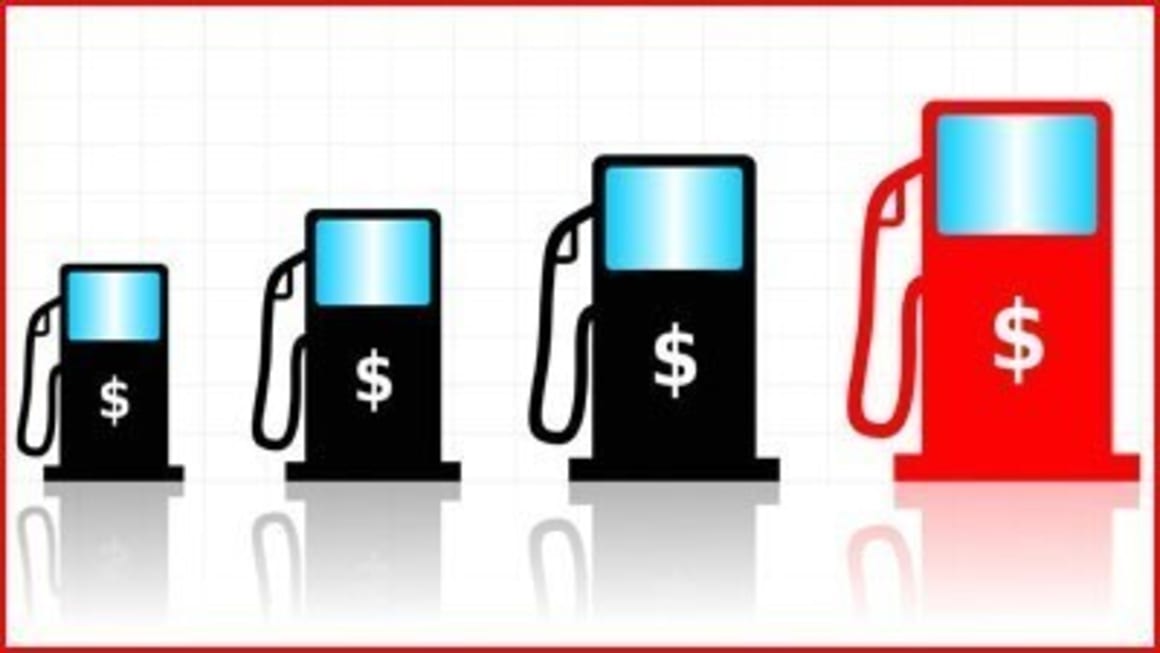Rising petrol prices could cause house prices to fall but could prompt earlier rate cut

The trend of rising petrol prices could slow down any recovery in the property market and prompt the Reserve Bank to cut interest rates, according to experts.
Rising petrol prices were a contributing factor in the downturn of the early 2000s.
CommSec is tipping petrol prices to rise by between 2% and 3% over the next fortnight, taking the national average prices above $1.50 a litre for the first time in more than three years.
This follows the national average retail petrol price rising by 1.3¢ to 147.1¢ a litre last week, according to the Australian Institute of Petroleum.
Petrol prices have trended upwards since September 2009 as the following graph shows:
Click to enlarge
The last time the petrol price sparked major public concern was in early 2001 when prices went over $1 per litre in some parts of the country following increases to excise duty on fuel and a small GST increase on fuel imposed by the Howard government.
This resulted in a 10¢ rise in petrol prices overnight.
At the time economists warned that the higher cost of fuel was having a negative impact on consumer sentiment and dampening the effects of the housing boom underway at the time.
Figures released by the ABS in 2003 (petrol prices continued to rise to over $1.05 a litre at the time) showed house price growth slowing from more than 20% in 2001 to just 7% growth in the second half of 2002.
“The only people that benefit when petrol prices go up are the big oil producers,” said Deutsche Bank economist at the time.
Savanth Sebastian, economist at CommSec, says petrol prices have continued their recent upward trajectory and “unfortunately for motorists there are no signs that conditions are likely to get any better over the next couple of weeks”.
According to Sebastian, since the start of the year the average monthly household fuel bill has lifted by $8 to just shy of $177, taking more money out the pockets of already conservative consumers.
“The Reserve Bank will closely assess both rising oil prices and the higher Aussie dollar as both potential serve to slow down spending. The Reserve Bank still has a rate cut on the radar screen, especially if consumers remain cautious to spend,” he says.
Sebastian says recent predictions of petrol reaching $2 a litre “are clearly overdone”, though he agrees that petrol prices are likely to track higher, although the gains are “likely to be much more circumspect and take place over a longer time period”.
“More importantly, it is likely that OPEC would increase production targets well before domestic pump prices reach $2 a litre. It is in OPEC’s best interests to ensure that higher oil prices do not pose a threat to the global recovery,” he says.
Charlie Nelson, managing director of trend-spotting firm Foreseechange, says the increase in petrol prices could change location preferences of home buyers.
"We have seen people moving to tree change and sea change locations, but there could be train change for people looking for something close to public transport," he says.
Years of rising petrol prices have already changed home buying behaviour, according to Robert Mellor, director of economic researchers BIS Shrapnel.
Mellor says houses and apartments closed to railway station are more likely to have price spikes than those further away from public transport.
KPMG demographer Bernard Salt agrees and says the main driver of property values in the next decade will be access to a train station.
According to CommSec, average petrol prices across states over the week ending March 18) were: Sydney (unchanged at 144.6¢ per litre), Melbourne (up 0.9¢ to 143.9 ¢/l), Brisbane (down 2.¢ to 147.8 ¢/l), Adelaide (up 9.2¢148.4 ¢/l), Perth (up 1.2¢ to 147.4 ¢/l), Darwin (up 0.7¢ to 156.5 ¢/l), Canberra (up 0.9¢ to 147.7 ¢/l) and Hobart (up 0.9¢ to 154.1 ¢/l).
